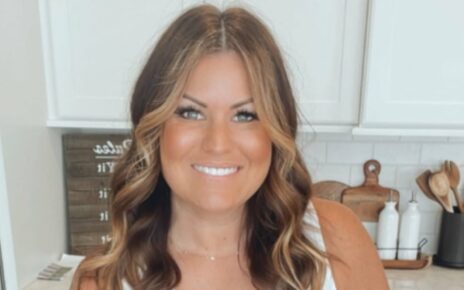COVID deaths have started to rise again, new data has revealed.
As cases also increase, Brits have once again been warned to stay away from elderly relatives if you feel under the weather.

It comes after a surge in cases and hospitalisations as experts warn of a new wave, with those eligible being urged to come forward for their vaccines.
Dr Mary Ramsay, Director of Public Health Programmes at the UK Health Security Agency (UKHSA), said: "There are early indications that deaths with Covid-19 have also started to rise.
"Whilst this is concerning, it is too early to say whether these are deaths due to Covid-19 and it is reassuring that at this stage there is no overall excess mortality.
“If you are unwell or have symptoms of a respiratory infection, it is particularly important to avoid contact with elderly people or those who are more likely to have severe disease because of their ongoing health conditions.
Read more on Covid-19

The top 20 Covid symptoms right now revealed as cases surge by 34% in 2 weeks

Millions more eligible to book autumn Covid boosters now as cases surge
“Wearing a face covering will also help stop respiratory infections spreading.”
Data from the Government's Weekly Flu and Covid report states that deaths have increased in the last week.
A small increase can been seen on the chart, with over 500 deaths being recorded in the week beginning October 3 – up from around 400 in the week beginning September 5.
It's important to note that these are deaths with Covid – meaning a person may have also been suffering with another illness.
Most read in Health

The top 20 Covid symptoms right now revealed as cases surge by 34% in 2 weeks

NHS waiting list hits new record high breaching 7million for first time

Signs of brain disease can be seen 9 years before diagnosis – are you at risk?

Millions more eligible to book autumn Covid boosters now as cases surge
The data shows that the number of people testing positive has risen from 11.7 per 100,000, to 12.1 per cent in the last week.
Hospital admissions also increased from 10.65 per 100,000 to 12.60.
Rates of admissions were highest in the North East, with 15.84 per 100,000 of the population.
Separate data from NHS England also revealed that admission rates are at their highest since July.
A total of 10,608 people with coronavirus were in hospital as of 8am on October 12 – this is up 10 per cent from 9,631 a week earlier and is the highest figure since July 29.
Data from the ZOE Symptom Tracker app also revealed cases have increased by 34 per cent in the last two weeks.
Data shows that there are currently an estimated 235,829 new daily symptomatic cases of Covid in the UK.
This is up almost 34 per cent from 176,090 daily cases two weeks ago, figures from the ZOE Symptom Tracker app shows.
Professor Tim Spector, the lead on the ZOE study said despite an increase in cases, the bug is actually slowing.
Posting to Twitter, he also added that the wave of colds is also declining.
UNDER PRESSURE
Since the Omicron wave took hold in the UK last year, the majority of people who get the bug are experiencing common cold like signs.
This strain has been proven to be milder than those that have come before it such as Delta and Alpha.
The spread of the bug may also be slower due to a mammoth vaccine rollout and the fact that many people have already been infected.
The NHS data also showed that rates have dipped slightly in recent days – with all figures remaining well below the levels reached in all waves.
Read More on The Sun

I’m devastated after council ordered me to take down 30ft gold naked statue

Martin Lewis issues warning for couples over mistake that could mean losing cash
Professor Sir Stephen Powis, NHS national medical director, said the increase in patients with Covid-19 was causing “continued pressure” on the health service, along with a rise in the most serious ambulance call-outs and delays in discharging patients into community and social care.
He added: “As we prepare for a difficult winter ahead, it is vital that people protect themselves by coming forward for Covid and flu vaccinations if they are eligible as soon as they can – with bookings opening on Friday to everyone aged 50 and over.”
Source: Read Full Article
